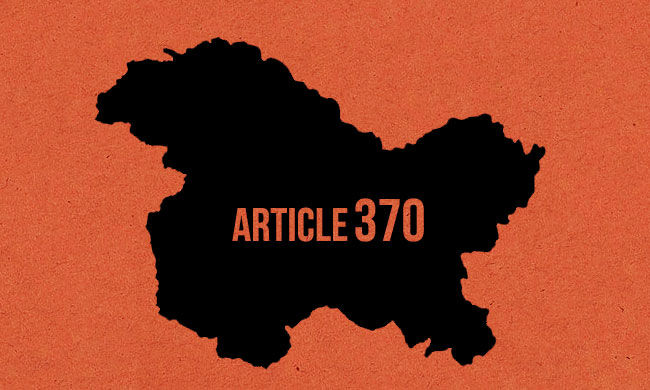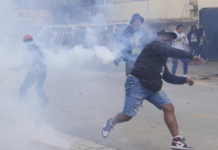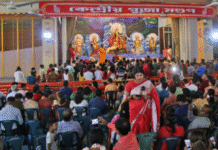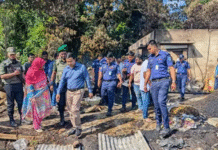
Imagine, you are in the spiritual capital of Andhra Pradesh- Tirupati and a local guide is selling you pictures of Dal Lake Srinagar or for instance you are in Arunachal Pradesh – Ziro, a beautiful town that has been a world heritage site certified by UNESCO and is known for its tribal culture, but local guide is briefing you about Gulmarg. How will you feel, surely disgusted and perturbed, because you are at that place to see the beauty and unparallel attributes of that very place and not of any other location, but still the ‘nonsense’ guide is getting on to your nerves by telling you everything about Kashmir and not the place you are interested in. Unfortunately, we are experiencing the same kind of political discourse in India, where to garner votes in Bihar and Maharashtra our politicians sell Kashmir. In the recently concluded couple of state elections in India, probably from Haryana to Bihar, the political party, especially ruling Bharatiya Janata Party (BJP) has been selling Kashmir. They are deliberately creating a divide between people, by segregating them into nationalists and so called anti-nationalist, by time and again raking up the issue of abrogation of Article 370, which earlier granted special status to the erstwhile State of Jammu and Kashmir.
Leaders of BJP have been talking about integrating Jammu and Kashmir with India after scrapping Article 370. In all their political speeches, they brag about how something good was done, which had been hampering development in the region. Even the Prime Minister sold Kashmir in his election rallies, by saying that people of Jammu and Kashmir and Ladakh were deprived of their rights. With the abrogation of Article 370, the dreams of Sardar Vallabhbhai Patel, B.R. Ambedkar and Syama Prasad Mookerjee have been fulfilled. A new era in Jammu and Kashmir has now started, but even after one long year, nothing changed on the ground, rather the hostility aggravated further.
The moot point here is what a voter in Bihar has to do with the abrogation of Article 370 and how scrapping of any Article of Indian constitution that too with constitutional procedure amounts to ending anti-national forces. I believe that voters in Bihar, Jharkhand or in any state of the country should be more interested in knowing what they are getting in the name of electing a new government or choosing the incumbent, instead of hankering what other people have lost in some other part of the country.
Were we illegal occupants in J&K?
The way and intensity, with which the present government at centre, led by Narendra Modi is stressing on the integration of Jammu and Kashmir with the union of India after abrogation of Article 370, has made the claims of India on territory of Jammu and Kashmir in the past more than 70 years questionable. If they are fooling people by saying that Jammu and Kashmir has been integrated in 2019 then they are endorsing the view point of separatist forces in Kashmir and obviously the stand of Pakistan, which has been negating the very legitimacy of instrument of accession, signed by Maharaja Hari Singh and Indian Prime Minister, Jawahar Lal Nehru. The BJP government, for the sake of petty votes has decimated the history of India and Jammu and Kashmir, by claiming that J&K has been integrated in 2019 after abrogation of Article 370. It has provided leverage to the separatist forces to accentuate Kashmir issue at international forums, claiming that India had ‘illegally occupied’ Kashmir since 1947, as present dispensation has asserted that disputed territory has been integrated in 2019 after abrogation of Article 370.
Where is the policy of assimilation?
The government of India has been fighting elections by claiming that Jammu and Kashmir has been integrated but what policy they have for the assimilation of people. Home minister says that Article 370 didn’t allow democracy in J&K and this move will be for the betterment of the erstwhile state, but he hasn’t allayed the public apprehensions and questions. How anything could be good for people, if its implementation needs complete lockdown and communication blackout. They talk about democracy, but will they throw light on the basic attributes of democracy and tell the nation, wherein democracy it is mentioned to sabotage people’s right to protest and move freely. It’s been more than a year now, the people have been deprived of high speed internet and when anyone asks for it, the BJP leadership terms him anti-national or terrorist, which is the high level of democracy for the party. The particular move of the government, firstly unilaterally revoking article 370 and then making it a plank to garner votes in different states of the country, has made people in Jammu and Kashmir more hostile towards the Union. New Delhi has no policy to assimilate people, which is clear from its policies of letting everyone in the country buy land in Jammu and Kashmir. The people in Jammu and Kashmir have suffered since a long time and have been particularly recognized as the people of conflict, but when it came to enjoy dividends of scrapping of article 370, as claimed by the government, they have been categorized as normal people and not people of conflict. The people of the country have to understand that scrapping of Article 370 or degrading the state into Union Territory has brought no good for the country as a whole and it will never bring any, because it has nothing to do with the national interest. The move has strengthened the political narrative of a particular party and it has been vindicated through their election speeches. Had the move for the interest of the nation, it had not been raked up again and again during every political speech, which amounts to rubbing salt on the wounds of the people of Jammu and Kashmir, who related article 370 with their identity. If the government at centre really wants to do anything good for Jammu and Kashmir, they should focus on development and stop politicizing the issue for vested interests.
Pardeep Singh Bali is a Research Scholar in the Department of Journalism and Mass Communication, Punjabi University Patiala









